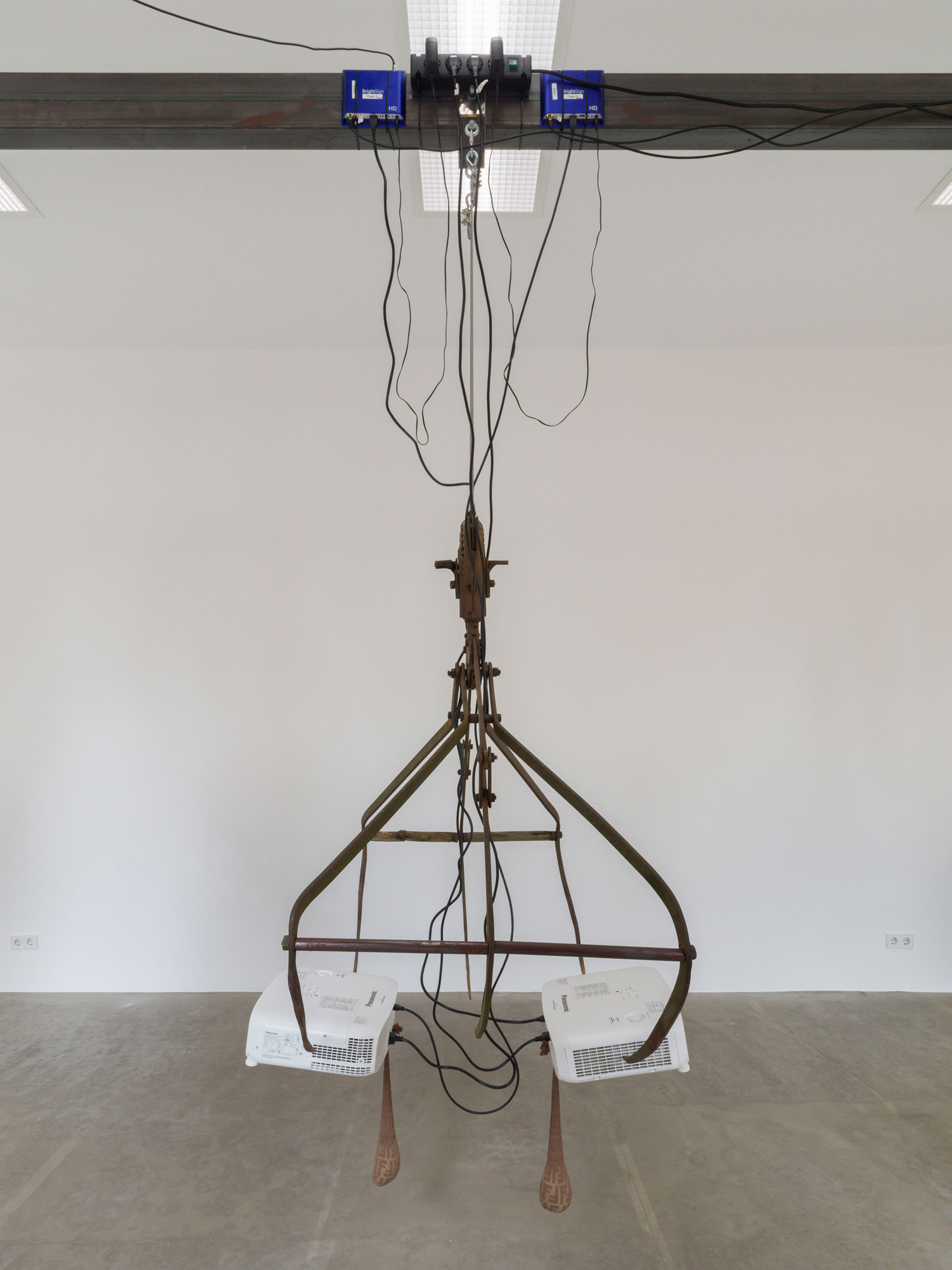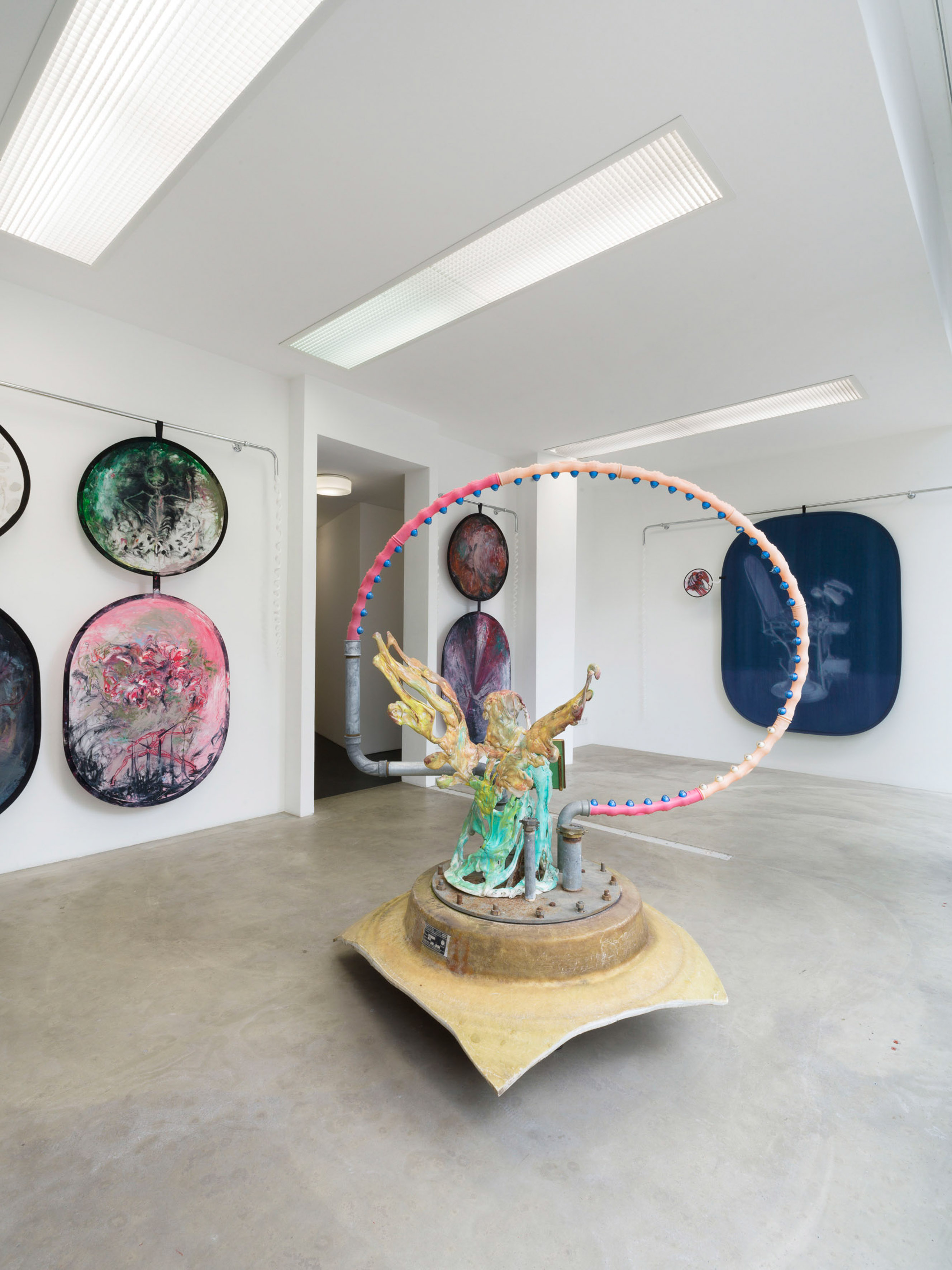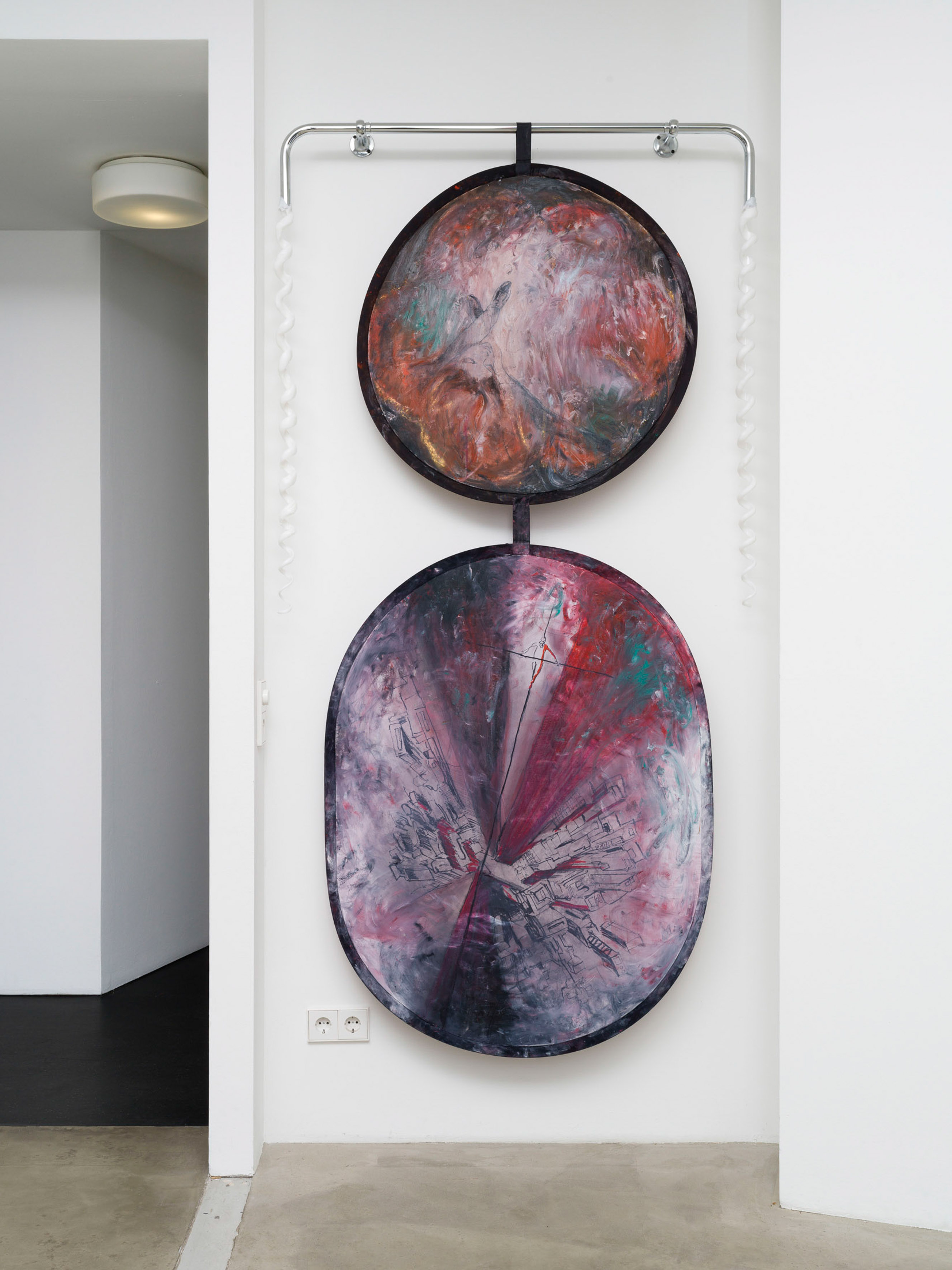YYYYMMDD >>> BACK HOME <<< >>> SELECTED FEATURES <<< >>> INTERVIEWS <<<
[20231205]
FOUND SUBJECT by RAPHAELA VOGEL at BQ BERLIN [from 20230916 to 20231118]
[Photos: Roman März]





















The Found Subject was found as incidentally as the widely known Found Object (as in ‘found footage’) from those aesthetic orders and artistic practices that work with things ‘ready’ and found. The difference to the latter lies in its subjectivity: the Found Subject speaks because it is human and has a story. It is several humans. A Jewish writer during the time of the Nazi regime, his wife and their adolescent son. And an artefact, an unusual house, that invites one to abduct artistic-architectural intentions, combined with an ambitious plan to create prototypes for a new way of building using mutable stacked cubes.
The human is writer Erich Hopp of whom only few traces remain. Raphaela Vogel moved into the house two years ago. It was built in 1930/31 by architect Richard Iwan who came up with programmatic claims about the modernist estate and tried to turn those into brand names (‘cube house’ or ‘Staffelheim’, which could be translated as scaled home). Erich Hopp and his family hid from the Nazis for almost three years, half of the time in this house, invited by the owner Alexander Maguerre. They only survived with great sacrifices. Both Hopp and Iwan are largely forgotten but the artist encounters them everywhere around the house.
From those traces that could be saved – among them architectural drawings, written statements from Iwan to the authorities in the 1930s, a song (Tango) that Hopp wrote around 1930, cues about his work as a director in a workers theatre of the 1920s, a book of psalms written by him from the underground and his memoir about a nerve-wrecking time dominated by hunger and cold which was extremely damaging to his health, published in the US edited volume ‘We Survived’ in 1947. These materials form the basis of a complex imaginative installation. The intersection of architectural modernism, the abhorrence of German fascism and antisemitism, as well as the transformation of despair into religious and spiritual hope are Raphaela Vogel’s points of departure.
The artist sings a tune with the words of one of Hopp’s psalms in a film that dramatically stages the architectural premises. Projected on two halves of a sphere in two antagonistic tapered angles, the film confronts the architectural rhythm, the formal beauty of the house with the hiding place’s abyss of technical and existential problems. Film, song, both parts of the sphere, which were made of an opened oil tank, and the bizarre agricultural tool used for holding the projector, a hay claw, form a central configuration. The psalms which, according to Hopp, were written in an ecstatic-hypnotic state and reinvigorated him in the face of hardship, are very general and fundamental in their hope for redemption. The god called upon is not distinctly Jewish or Christian. This vulnerable text which is not cushioned by literary stylistic mannerisms meets a walk through the bright and welcoming house. Shaped by a stacking of ornaments, the work of the camera shows a multitude of views through the house and surprising perspectives that at times come close to religious architecture.
In the ‘Geometry of Events’, the artist differentiates between four possible points of access to incidents like this story of Hopp and his family. Central angle – being affected, victim, fighter, refugee, in hiding / Secant – people in solidarity, who take risks for the sake of others / Tangent – those who are empathetically touched and remain in their world / Passant – no connection.
This central work in the main room of the gallery is augmented by two adjacent projects. In the entrance area, an ‘art exhaust hood’ presents everyday scenes from the lives of those who left these years behind, as survivors and as those who got away just as like those who were forgotten; an eternally carefree Germany during leisure time in the 1980 and 90ss. In the back room, the artist confronts paintings that she started working on two years ago with manipulated industrial brochure photos of historic medical equipment from the first half of the 20th century. As ambiguous images, these tools, pieces of furniture and machines embody the tipping point where humanism and (medical) rationality turn to control, standardization and finally submission and torture, a chapter in the history of instrumental reason.
[Text: BQ Berlin]
©YYYYMMDD All content and design by Daniela Grabosch + Ricardo Almeida Roque unless otherwise stated. Images, Videos and Texts can only be used under permission of the author(s).